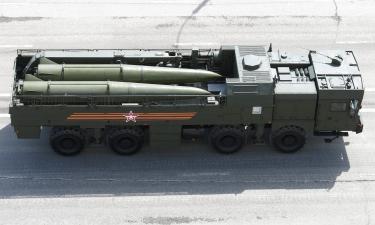No Criminal Responsibility for Using Nazi Symbolism in Russia
The killing of professor of ethnology Nikolay Girenko stirred up the Russian society
On July 9th the State Duma did not pass the draft law about the criminal responsibility for the use of Nazi symbolism in Russia in any form. The Moscow City Duma submitted the draft law to the State Duma. One hundred and three deputies voted for the document (although the needed number of votes was 226), 23 deputies voted against it, RIA Novosti news agency reports. 
The authors of the bill suggested the introduction of financial penalties or correctional works for the public use of Nazi symbolism and salutatory gestures - images of swastika, Nazi flags, uniforms, etc. The same actions committed with the use of mass media, with the production and distribution of printed, audio, photo and video materials would be punished with the restriction of freedom up to two years or with imprisonment of up to one year.
Moscow City Duma member Vladimir Platonov said the draft law had been prepared and submitted to the State Duma in 1997. The document was rejected because of its age and due to the renovated legislation. Furthermore, the law about counteracting extremist activities came into effect too. Russian government's envoy in the State Duma Andrey Loginov stated that the law contained the double formulation of several norms. The image of swastika is an ornamental element of many Iranian nations, it is an ancient Roman symbol too. The envoy believes such symbolism in the active form is used to consolidate the forces, which practice the fascist ideology - "the ideology of violence and brutality that makes people solve any social problems by means of ousting or suppressing other groups of the society." "This ideology is absolutely unacceptable in our Russian democratic society, and Nazi symbolism may play a consolidating role in the actions of those forces," Loginov said in a statement. Loginov expressed his regret that the authors of the draft law did not develop the document completely before submitting it to the first reading at the Duma. However, he emphasized one should return to the issue again soon.
In the spring of the current year Russia's foreign minister promised to deal with extremist youth organizations, but apparently there was no attempt made. The killing of professor of ethnology Nikolay Girenko has stirred up the society. Hundreds of students, professors, scientists, pensioners, journalists and many others signed the petition asking to take the case of the murder under the special control of the Office of the Prosecutor General and the president. Several public organizations, which initiated the action, prolonged the collection of signatures until July 15th, because numerous letters continued arriving even when the collection was stopped. Initiators of the action believe the political assassination of the antifascist scientist has become a public fact, which requires an adequate reaction. The majority of the people, who signed the petition, are far from politics, but they have been all shocked with the unprecedented brutality of the crime committed in St.Petersburg.
Nikolay Girenko was a renowned professor of ethnology. He was the country's leading specialist in the field of national extremism and racism. On June 19th the scientist was reportedly shot dead through the door of his apartment when he was going to answer the doorbell. Public organizations are certain the professor was killed because of his antifascist views and activities.
The petition to the Office of the Prosecutor General and the president runs: "Most extreme forms of nationalism - violence, systematic propaganda of hostility, discriminative actions on the part of law-enforcement bodies and their encouragement by state officials in up-to-date Russia must be effectively suppressed and stopped in conjunction with the law. It would be enough to fulfill the laws and political will in order to pacify the growing storm of extreme nationalism and neo-fascism."
Subscribe to Pravda.Ru Telegram channel, Facebook, RSS!




